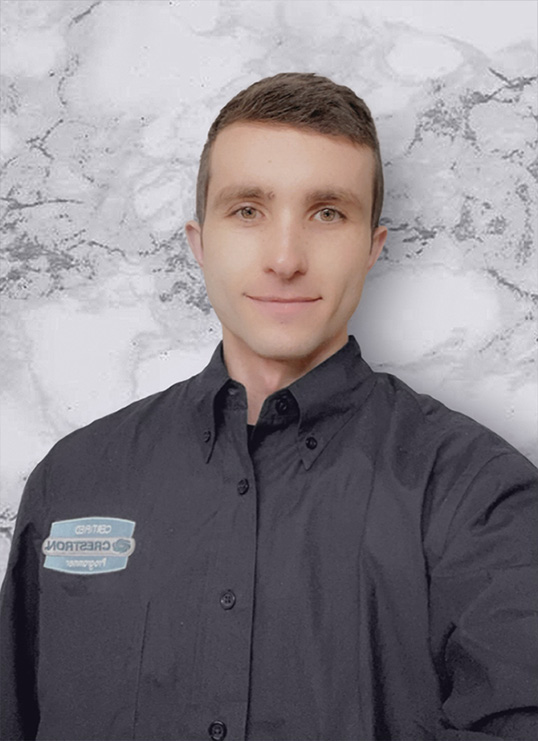AV Insider Spotlight : Jay Basen – Home Automation Industry Veteran
Each week, I am highlighting on some of the incredible people who are in the Audio Video Industry. As this blog is mostly about AV insiders, today we are profiling Jay Basen .
Here is a brief intro about him.
 Jay Basen has recently retired from professional programming after almost 40 years. Of that, he spent over 20 years, first as a hobbyist and then as a professional, designing and programming both residential and commercial automation systems. His focus today is to give back to the industry through his blog – “Topics in Home Automation” (https://topicsinhomeautomation.blogspot.com/), through the code he writes and distributes, for others to use, on his Github (https://github.com/jbasen), and through his activities with other programmers.
Jay Basen has recently retired from professional programming after almost 40 years. Of that, he spent over 20 years, first as a hobbyist and then as a professional, designing and programming both residential and commercial automation systems. His focus today is to give back to the industry through his blog – “Topics in Home Automation” (https://topicsinhomeautomation.blogspot.com/), through the code he writes and distributes, for others to use, on his Github (https://github.com/jbasen), and through his activities with other programmers.
Please drop your questions in the comments below and I will make sure that he sees them.
1.Describe your journey in the AV industry? How did it start?
I really don’t feel I’ve ever been part of the AV industry. What I’ve really been part of is the home automation industry. My educational background is engineering and software development. I have a masters degree in engineering but every job I have ever had involved writing software. Professionally I wrote code for everything from avionics systems for the Air Force, economic modeling for the World Bank, embedded systems for medical instruments, and more. Later I was a vice president for a consulting company specializing in custom software development for fortune 1000 corporations with over 250 employees and offices in 5 states. However, I was also a home automation hobbyist starting in the 1980’s. I developed an extensive X10 based automation system to automate my own home and definitely pushed the limit of the technology as far as I could.
When my wife and I decided we wanted to eventually move to a small ski town where we could better enjoy our passions for skiing and mountain biking I realized that there were not positions in that type of community managing a large software development organization. However, there were many large homes owned by people who could both afford, and benefit from, automation. I left the world of business programming and management to join a local AV company (Gramophone) that had a growing business in developing automation systems based on products from Crestron.
I was thrown into the deep end of the pool as my 2nd project was to program a 16,000 sq ft home where the home owner wanted to automate everything in the home. I had quite a few sleepless nights getting the project completed but in the end the project became the subject of a number of magazine articles and won multiple awards.
Gramophone was a very forward thinking company and we were constantly pushing the limits to deliver not just AV control systems but systems that delivered true automation for customers.
After quite a few years with Gramophone my wife and I fulfilled our dream and moved out west to the mountains of Idaho.
 2.What do you think is the challenges that are facing a new person who wants to join the industry.
2.What do you think is the challenges that are facing a new person who wants to join the industry.
I think there are a couple of big challenges facing someone entering this industry.
1) Learning to work within the complex environment of a construction project. While you are working on the design and software development of the system you need to work with the people in your own company including the sales staff, installation staff, etc. Those are the typical interactions that you would face if you were entering the workforce in a corporate environment. However, in this industry you will also need to work with the customer (or their representative if the customer is at the higher end of the economic spectrum), interact with other trades on a construction site, and interact with the construction manager. You need to develop a positive working relationship with all these people. People in the AV industry are typically considered to be a P.I.T.A by the other trades so this can be very challenging. If not done well you can find drywall screws run through your cabling in random locations or sawdust dumped through the vent holes of expensive electronics.
2) Technology is changing so rapidly it is becoming more and more challenging to stay up to date and keep yourself relevant. Working in this industry can’t just be a job; it has to be a passion because you are going to need to put in a lot of your own time to keep up with the changes in technology that are occurring every day. Your work during the days is going to pay the bills and to be successful you are going to need to spend time on your own to keep up.
3) It used to be that you could rely on a single vendor to supply the vast majority of products you would use on a job. This simplified life tremendously. When something didn’t work you picked up the phone and called tech support for help. Today there is more and more integration of products from multiple vendors. The learning curve is much steeper because of this and when something doesn’t work you run into finger pointing from the different vendors. The end result is that it is much more complicated and challenging to resolve technical problems.
 3.What are the positives of working in this industry
3.What are the positives of working in this industry
Home automation can be very fun and rewarding. When you develop a successful relationship with a customer and can see how much of a difference it makes in their lives it is a truly positive experience. It won’t happen on every project but the ones where it does make all the difference.
My favorite customer was an older couple who took on the challenge of restoring an 18th century stone home that was close to falling down. It was a very challenging project integrating technology into a home of that age without it destroying the character of the home. The customer really appreciated the hard work that everyone put into the project and the result was a fantastic home with an automation system that became integrated into their lives.
Another advantage that people don’t always take advantage of is the ability to get gear at discounted prices and integrate it into their own homes. I consider this a both a benefit and a necessity. If you are developing automation systems for other people and aren’t living with one yourself you are doing your customers a disservice. Only through living with the same equipment you are putting in customers homes do you understand it well from the customer’s perspective.
[RELATED] : If you have missed any of the previous interviews, please click here.
4.What in your opinion would you change in the industry? What are the negatives that are prevalent ?
Where do I start 🙂
First and foremost there is too much proprietary gear and lack of standards for inter-operability. Instead of striving for technical excellence manufacturers put effort into building road blocks designed to maximize their own sales and profitability. In an ideal world integrators could choose the best of breed components and they could be easily, and inexpensively, tied together into a cohesive solution for customers. I think that this would be a win-win for everyone. I think automations systems would have more penetration into homes, more hardware would be sold, and the manufacturers, along with everyone else in the industry would make more money.
I think it is too hard for people in the industry to purchase automation equipment for their own homes. I’m not saying that it isn’t readily available. I’m simply saying that, for the average person in our industry, even at wholesale prices, it is still too expensive. The automation systems being delivered to customers would be so much better if all the people involved in selling, designing, installing, and programming automation systems lived with one.
There needs to be better certifications, not for individuals, but for businesses. There is a focus on training and certifying individuals with the assumption that a company with a certified person on staff will deliver quality services to a customer. Unfortunately, it really isn’t that simple. One or two certified people on staff may have little hope of influencing the overall quality of delivery in a larger organization.
Going hand and hand with that is the need for education of the general public on the value of working with a certified organization. There are too many companies that do very low quality work and give everyone in the industry a bad name. It is nearly impossible for customers to tell the difference between a quality integrator and one that doesn’t know what they are doing. Even after a project disaster is cleaned up the customer is left with a bad taste in their mouth and nobody in the industry wins.
 5.Describe your ideal client? What do you wish clients to know before hiring you.
5.Describe your ideal client? What do you wish clients to know before hiring you.
Here are some of the attributes that, for me, made an ideal client:
1. The client wants to be involved in the process. They aren’t just saying I want an automation system and expect one to magically appear that meets their exact needs.
2. The client is open to a technical discussion. I don’t expect them to have technical knowledge. They can ask me as many questions as needed so they understand but they are at least open to having a discussion on the topic when there is an issue to be resolved.
3. The client wants to get the best system they can
4. The client views you as a partner, not just another trade getting their home built.
The one thing that I wished a client would know before hiring me was that developing an automation system, which truly meets their needs, is a collaborative process. For the system to truly meet their needs means that they are going to have to be involved.
 6.If you were going to start over, what would you do differently ?
6.If you were going to start over, what would you do differently ?
Depending on how far you look back there are so many things I would do differently. In 5th grade I would…never mind.
Now as far as my career in home automation there are two things that really come to mind:
1. I would have looked for ways to get more involved in both industry groups, such as CEDIA, as well as working more closely with manufacturers to improve the industry. My own impression is that most manufacturers in this industry don’t leverage outside resources enough. Their products are too internally driven and don’t really reflect the needs of the real world.
2. I let myself get to caught up in the proprietary tools developed by manufacturers to deliver their automation solutions and didn’t invest enough time in developing programming skills with tools that are used for more generalized web and web services programming. Today with the kinds of integration work required on real world projects those skills are becoming a necessity. Now I am really playing catch-up to get those skills where they need to be.
7.Describe a typical work day for you. What are your daily disciplines?
Now that I have retired, my life is very different. I make sure that I spend part of every day in the winter skiing and part of every day in the summer mountain biking. Last year I skied almost 150 days. Making sure I enjoy my retirement is my first priority.
Outside of that I spend a great deal of trying to keep up on technology as it rapidly changes. I get countless emails from various technology sources (CNet, Digital Trends, The Hustle, and the list goes on) that I read. When I find topics there that are of interest to me I start digging in deeper to learn what is happening. I also spend time searching through Kickstarter and Indiegogo to try and find the latest products being developed. Finally, I spend time reading through a number of home automation programming forums
What all this does is give me ideas for new features that would be useful in a residential automation system. I then begin the process of developing the idea and adding it to the system in my own home. If things work out and the feature adds value to my system then I publicize it on my home automation blog and potentially distribute the code on my github. My home automation blog can be found at:
https://topicsinhomeautomation.blogspot.com/
 8.Describe the apps and gear that you use daily which makes you more productive?
8.Describe the apps and gear that you use daily which makes you more productive?
I have an extensive shop where I can do wood working, metal working, CNC routing, 3D printing and even an electronics bench for hardware development projects. Having a dedicated space for this helps get projects done.
From a software perspective, there is only one specialized app that I use to improve productivity – OneNote. Over the years I have used so many different apps to try and keep myself organized, to capture my ideas, etc. OneNote does a great job and it allows me to keep the data synched between my laptop, phone, and iPad so no matter what device I have with me I can write down ideas and not lose them.
Other than that I do all my programming work on a laptop with a 2nd monitor. When you had to go out in the field all the time and work in someone’s half finished basement you learn to get along without a ton of fancy gear. The only thing unique about my laptop is that it has a 17″ screen as programming tools use a lot of screen real-estate.
9. How do you stay relevant in this industry.
Staying relevant is very challenging once you’ve retired. It takes a lot of work or the world quickly passes you by. I was very lucky to come into this industry from the world of commercial/business programming. The knowledge and experience I brought from that environment gave me an advantage over most of the other programmers I saw in this industry; many of whom had no formal training in software development. I now try to pass that knowledge along to other people in the industry through my blog.
In my blog I try to cover a wide range of topics. I probably lean more toward topics that would be of interest to professional programmers in our industry but I also try and make the blog interesting for do-it-yourselfers and for people who might want to hire a firm to install an automation system in their home. Writing quality content in a blog takes a lot of time and effort; especially as some of the entries include software that I host on my github. But, I do get some good feedback; which makes the effort worth while. One automation company owner even shared with me that the blog is now mandatory reading for people in his organization.
For more information about Jay Basen , please check out his blog .
*****
Did you like this post? Connect with me on LinkedIn or just sign up for my free email newsletter.





